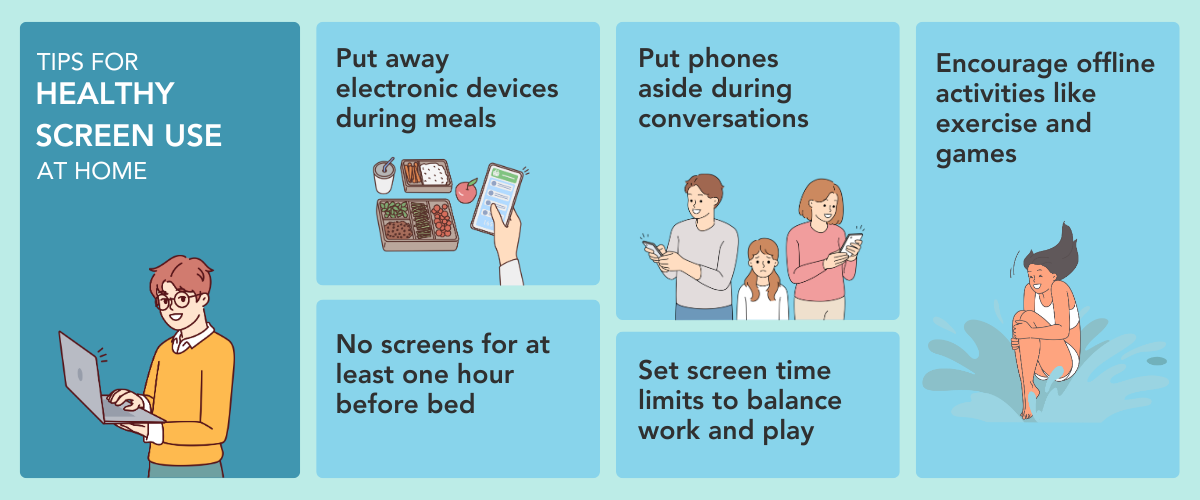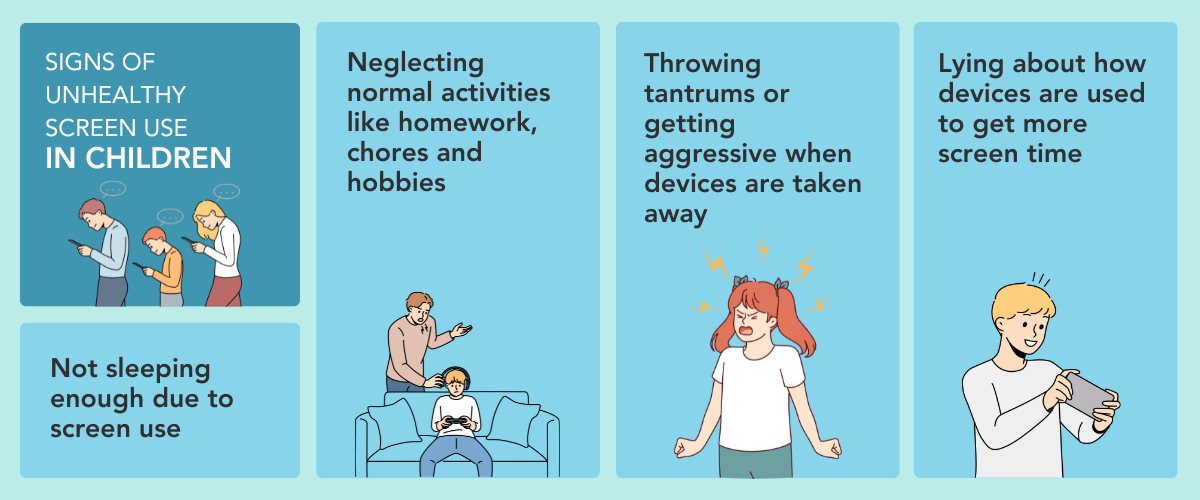It may seem harmless when your toddler watches a social media reel. However, their brains are still growing and developing. Excessive screen time in children typically stimulates one part of the brain while neglecting other areas. If young children do not take part in activities that use different parts of their brain, it can harm their cognitive development, explains Dr Ong Say How, Senior Consultant at the Department of Developmental Psychiatry in IMH.
Children need a mix of activities at a young age for healthy brain development. This includes playing, reading, and chatting with parents and caregivers. A growing child also needs human interactions to develop social skills, like communication and empathy.
However, people often push these important activities aside when screen use replaces them. Without these interactions, they may struggle when they grow up, which can affect their future mental health, said Dr Ong.
Too much time on screens can also mean less time for other healthy every-day activities. For example, a toddler who watches screens for too long may miss out on chances to run, climb, jump or play actively. All these day-to-day activities are important for building motor skills and keeping physically healthy.
Screen time that cuts too close to bed time may also disrupt sleep. For school-going children, not getting enough sleep can cause tiredness, irritability, and trouble focusing in class. This can hurt their school performance.
Research has shown that excessive social media use is among the factors associated with mental health symptoms. The National Youth Mental Health Study (NYMHS) 2024 conducted by IMH found that approximately one in four youths (27 per cent) aged 15 to 35 years who spent more than three hours daily on social media were 1.5 and 1.3 times more likely to report severe or extremely severe symptoms of depression and anxiety, respectively.
It is worth noting, however, that this does not necessarily mean they have a clinical condition, but staying in such states for too long can harm a person's well-being.
Children often mimic what they see. If parents and caregivers are constantly on their phones, they may think such behaviour is normal. That is why Dr Ong stressed the importance of parents modelling healthy screen behaviours by showing that there is a right time and place for screen use.

- Start early by setting clear, consistent routines and house rules such as:
- No electronic devices during family meals
- No screens for at least one hour before bedtime
- Talk with older children about screen time limits. This helps them enjoy their devices while still doing homework and other chores.
Carving out meaningful interactions with a child also builds strong family bonds. Encourage offline activities like reading, exercising, board games and family outings. Even small changes, like putting the phone aside to chat face-to-face, can make a difference.
Over time, good habits can help shape how children view and use technology in a healthier way. "If good life habits, regular routines and self-discipline are developed during childhood, then any conversations on handphone usage with an older child would be easier," Dr Ong said.
While spending a lot of time on devices is unhealthy, it is not a sure sign of an "addiction". In fact, there is currently no way to officially diagnose screen use addiction in children. That said, children can become too dependent on their devices. When this happens, there may be signs that show they struggle to manage their screen time.

Signs to look out for include:
- Increasing screen use to the point where normal activities like schoolwork, chores and hobbies are neglected
- Constantly thinking about using devices or getting more screen time
- Not able or willing to reduce device usage, and unwilling to share or return the device to parents
- Lying about what they are doing on the device to get more screen time
- Not sleeping well or not getting enough sleep because of screen use
- Throwing tantrums or getting aggressive when devices are taken away
If these behaviours sound familiar, start by having an open discussion with the child about their screen use habits. Work together to create a realistic schedule that balances screen time with other activities. Include outdoor play, study time, and sleep. Revisit and adjust the plan regularly.
If things do not improve and the child's behaviour is causing problems, it might be time to seek help from school or other community resources.
Technology has become an integral part of modern life, so completely avoiding all screens may not be realistic. What matters is how children learn to use them, and this is where guidance from parents plays a key role.
Healthy screen use means choosing age-appropriate content, watching together, and keep background TV off during other activities. As children grow, help them use the internet safely. Set controls on their devices. Talk about what they watched and delay their use of social media. Limit their access to devices with parental controls.
Click to learn more about the Ministry of Health's guidance on screen use in children.